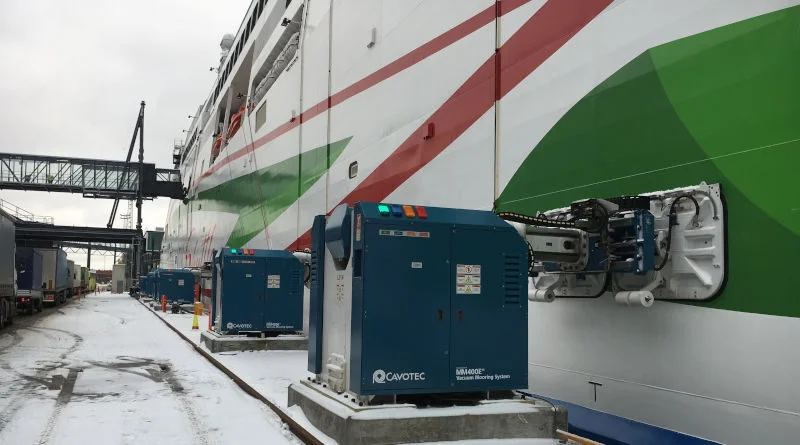1. Introduction
Tarmatic, officially known as TH Tarmatic Oy, is a Finnish company that designs and manufactures industrial tools, particularly specializing in pipe-bending tools and related mechanical engineering equipment. Based out of Muurame, Finland, it operates in the metalworking / industrial tools sector. The company is known for products that help professionals bend pipes, tubes, or other similar mechanical parts — sometimes in field applications, sometimes in workshops.
Because its product and patent record is somewhat niche, Tarmatic isn’t a household name globally, but it serves specific industrial and engineering markets. In this article, we’ll explore everything known about Tarmatic, what they do, what makes them interesting, and what might lie ahead.
2. Company Overview & History
-
Name and Legal Form: The company is registered as TH Tarmatic Oy (Oy = Limited company in Finland).
-
Location: The business is located at Kankaanperäntie 13, in Muurame, Finland.
-
Contact Information: Available phone contact is +358 40 778 7878.
-
Establishment & Legal Details: According to Kompass (a global business directory), TH Tarmatic Oy was established in the year 2000.
-
Industry Classification: The company’s core business is “manufacture of metal structures and parts of structures.” This covers things like tools, metal components, assemblies.
Thus, Tarmatic has been in operation for over two decades, meaning it likely has matured product development and production, some experience in export or specialized markets.
3. Product Lines & Innovation
While full product catalogs are not widely published, the available information indicates several focus areas:
Pipe Benders / Pipe-Bending Tools: One of the core offerings. For example, a battery operated mobile pipe bender “TB 35” is known via a YouTube video showcasing its quick guide.
Other Pipe Bending Tools: Patent records (see below) show Tarmatic developed tools for creating “pipe-offsets” (i.e. bends to shift the end of a pipe outside of an existing plane, to allow for connector placement or routing around obstacles).
“Tarmatic” YouTube / Tool Promotion: The company seems to maintain a YouTube presence under the channel “Tarmatic / TH Tarmatic Oy” where it shows videos of its tools in use, which helps users understand how to operate them, their capabilities, and perhaps demonstrate field usability.
Innovation in “Field Mobility”: The TB 35 model suggests usage of battery-operation and portability (“mobile pipe bending machine”) which is significant because many bending tools are large, fixed, or require hydraulic/power connections. Being battery-operated or at least portable is a competitive edge for field work or situations where power/hydraulics are unavailable or inconvenient.
4. Patents & Intellectual Property
Tarmatic has been active in acquiring patents, which helps understand their technological advancements.
-
Patent: Tool for Bending a Pipe (EP2056978 A1)
-
Applicant: TH Tarmatic Oy, 40950 Muurame (Finland).
-
Filing Date: 31 August 2007. Publication 13 May 2009.
-
Content: Device/method for bending pipes; particularly useful in forming pipe offsets for connectors so that connector ends lie parallel to a plane but offset from a main pipe run.
-
Utility: This is quite useful in piping installations where space is constrained, or connectors must lie flat, or when pipes need to bypass other piping or obstructions. The patent shows that Tarmatic has invested in not just manufacturing, but also R&D.
-
-
Other patents / methods: Another relevant patent is EP1159094 A1 (Method and pipe-bending device for manufacturing a pipe offset for a connector). This helps confirm that the company has had consistent developments in bending technologies.
-
Inventors: The inventors listed in the pipe-bending offset patent are Perttu Walkeajärvi and Jorma Lehtonen. These names suggest involvement of engineering staff in inventions.
5. Manufacturing, Engineering & Tool Capabilities
Understanding what Tarmatic can physically make, and their engineering approach, is key.
Scale & Focus: The company is focused on metal structures / parts of structures, particularly tools. Their niche seems centered on equipment that supports industrial pipe work and possibly plumbing, HVAC, hydraulics. The specialization implies they need strong mechanical engineering, metalworking, precision, durability.
Tools & Design: From videos and product references (e.g. TB 35) the tools are designed for heavy-duty use. Models show battery or mobile hydraulic / mechanical operation. The design likely emphasizes strength, ease of use, portability, safety.
Field vs Workshop Use: Given that TB 35 is mobile, battery powered, it suggests that Tarmatic targets both field operations (installations on site, repair, maintenance) and workshop usages. The difference demands ruggedness, ease of transport, adaptability to power constraints.
After-Sales / Support: The YouTube content (quick guides) implies that TH Tarmatic cares about customer support, instructions, usability. For industrial tools, proper guidance and training matter.
Patented Designs Show Technical Thought: E.g., the offset bending tools that ensure connectors correctly align show that Tarmatic is solving practical on-site problems — not just generic bending, but nuanced bending to accommodate connectors, alignment, space constraints.
6. Market Presence & Customers
While there is limited published data about sales volumes, customers, or markets, here’s what can be inferred or found:
-
Local / Finnish Market: Tarmatic is based in Finland; it’s reasonable to believe they serve domestic contractors, industrial installers, HVAC / piping companies, plumbing businesses, perhaps also municipal or government contracts in infrastructure.
-
Export Potential: Finland is well-integrated in European markets. The patents are European (EP), and the business directory listing (Kompass) likely has international reach. Thus it is likely that Tarmatic exports or at least can sell to neighboring countries.
-
Industrial / Construction Sector: Customers are almost certainly those requiring bending of metal pipes or tubes — e.g. plumbing, oil & gas lines, refrigeration, factories, perhaps shipyards or marine industries or industrial maintenance.
-
Competitive Position: The fact that Tarmatic has patented devices, mobile/battery-powered tools, suggests they compete on specialized features rather than simply cost. Their tools likely appeal to buyers needing quality, reliability, and flexibility.
7. Strengths & Competitive Advantages
Here are what appear to be TH Tarmatic’s strengths:
-
Patented Technology & R&D
-
Having European patents means Tarmatic has some proprietary advantages in pipe bending methods, offset bending, and possibly unique designs. This gives market protection and differentiation.
-
-
Specialization & Niche Focus
-
Rather than trying to produce every kind of tool, they focus on pipe bending, field mobility, variations like offset bending, which allows them to build deep expertise.
-
-
Innovative Product Design
-
Products like battery-operated mobile pipe benders are not universally available; this gives Tarmatic a competitive edge for field technicians or on sites without stable power or hydraulics.
-
-
Quality & Durability (Assumed)
-
Being in the metalworking sector in Finland, which has strong engineering culture, high standards, suggests that tools are likely well-built.
-
-
Support & Documentation
-
The use of YouTube, guides, quick start videos helps users learn tool operation, reducing misuse, returns, increasing user satisfaction.
-
-
Local Presence & Customer Relationships
-
For the domestic market, being local affords closer support, faster shipping, faster servicing of tools or spare parts.
-
8. Challenges & Weaknesses
No company is without challenges. Based on what is available about Tarmatic, here are some potential weaknesses or risk areas:
-
Limited Public Information & Branding
-
There is relatively sparse public data on revenue, scale, number of employees, customer testimonials. This can hamper legitimacy in new markets or for large contracts.
-
-
Competition from Larger Tool Manufacturers
-
Companies with global reach (Bosch, Milwaukee, RIDGID, etc.) may produce pipe-benders, including portable ones, with large marketing budgets. Competing with cost, brand recognition, distribution may be difficult.
-
-
Niche Market Size
-
The demand for specialized offset bending tools and battery mobile benders may not be huge in some regions. Scaling volumes could be challenging.
-
-
Dependence on Innovation Cycle
-
To keep a competitive advantage, Tarmatic needs to continue R&D and protect its designs. Investment costs, patent fees, regulatory hurdles could be burdens.
-
-
Distribution & After-Sales Support Outside Finland
-
If exporting, challenges include shipping heavy tools, establishing partnerships, providing service/repair, handling local standards/certifications.
-
-
Cost Pressures
-
Manufacturing metal tools requires raw materials (steel, hydraulic components etc.), which are subject to price fluctuations. Also, energy, labor costs in Finland are relatively high, meaning cost of production won’t be low.
-
9. Recent Developments
From the available sources:
-
YouTube Quick Guides & Video Content: The TB 35 battery-operated pipe bending machine has had a quick guide published. This suggests launch of or emphasis on this model.
-
Patents: Tools like offset pipe bending patents remain part of their IP heritage. The patent EP2056978 was published in 2009; whether it’s still enforced or in use is less clear.
-
Geographic Info & Contact Updates: Listings on Yelp, Kompass, Yandex Maps show current address and contact info, indicating that the business is still operational.
-
Branding & Web Presence: The company’s site “tarmatic.fi” is listed in some map and directory searches. That suggests they maintain a digital presence.
-
Product Evolution toward portability: The existence of mobile, battery-operated bending tools is relatively modern. Old bending tools tend to be fixed or require heavy infrastructure. That Tarmatic is making mobile ones indicates adaptation to customer demand in field works.
10. Future Opportunities & Threats
Looking ahead, Tarmatic has several paths to growth, as well as risks to manage.
Opportunities
-
Expansion into New Markets
-
Export more aggressively into Scandinavia, Europe, maybe North America. Local distributors, industrial tools dealers could help.
-
-
New Product Lines
-
Developing further battery-powered or cordless tools; tools for larger pipe diameters; tools with smart/digital features (e.g., sensors, angle measurement); modular or multi-tool systems.
-
-
Partnerships / OEM Contracts
-
Working with manufacturers, contractors, contractors of plumbing / HVAC, shipbuilding, or pipeline construction for customized tools or large volume orders.
-
-
Aftermarket, Spare Parts, Servicing
-
Offering strong support, spare component sales, maintenance contracts, could generate recurring revenue.
-
-
Digital Marketing & Visibility
-
More content, more advertising, more demonstration videos, client case studies could raise brand awareness globally.
-
-
Sustainability / Green Manufacturing
-
Emphasizing energy efficiency, durable materials, perhaps made with lower environmental impact – can appeal more as global industrial customers increasingly demand sustainability.
-
Threats
-
Large Competitors & Price Undercutting
-
Big toolmakers could replicate features or scale production more effectively, forcing down prices or dominating market share.
-
-
Raw Material & Supply Chain Volatility
-
Fluctuations in steel, hydraulic components, batteries etc., could raise costs or cause delays.
-
-
Regulatory / Certification Barriers
-
Different countries have differing safety, power, electrical/battery and manufacturing standards. Ensuring compliance can be costly.
-
-
Technological Disruption
-
If tools with digital integration, automation, robotic pipe bending become more available or cheaper, manual / semi-manual tools might become less competitive.
-
-
Logistics & After-Sales Complexity
-
For heavy industrial tools, shipping is a cost; maintenance over distances, parts replacement, warranties all cost and require infrastructure.
-
-
Market Demand Fluctuations
-
Construction, industrial investment is cyclical. Downturns hit sales of tools.
-
11. Conclusion
TH Tarmatic Oy (Tarmatic) is a specialized Finnish manufacturer of pipe-bending tools and related metal structure tools. With over 20 years of operation, patented inventions, mobile tool solutions (e.g. battery-powered bending), and focus on solving practical field engineering problems, they appear to have a credible niche.
Their strengths include R&D, patented product designs (especially for offset bending), innovation around portability, and a likely reputation for durability and quality. Their challenges are common to small-/medium industrial tool manufacturers: limited scale, competition, cost pressures, distribution, and ensuring visibility.
For potential customers or partners, Tarmatic represents a viable alternative if what you need matches their tool specialization — particularly if you require mobile pipe bending, offset bending, or durable tools built with solid engineering. For investors or watchers, growth could be possible via product innovation, expanding into new markets, digital marketing, or partnerships.





